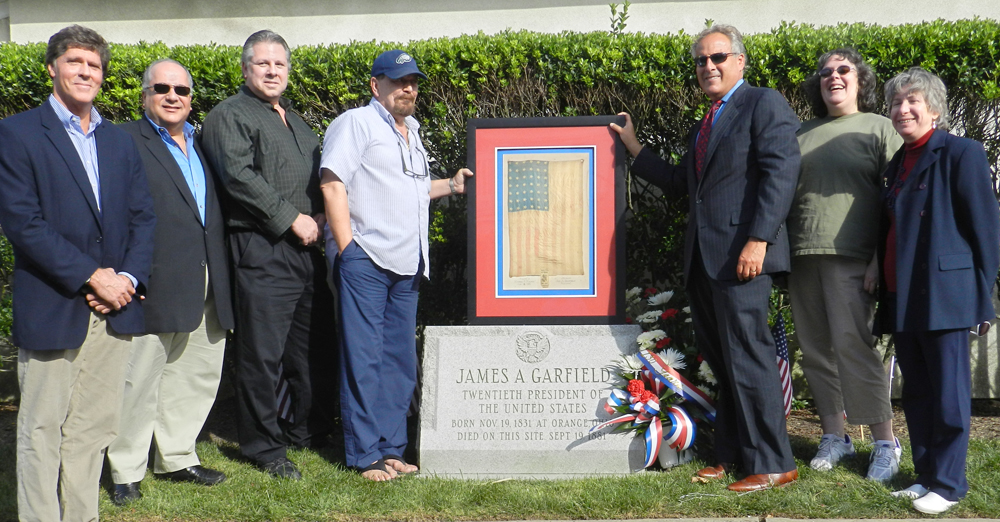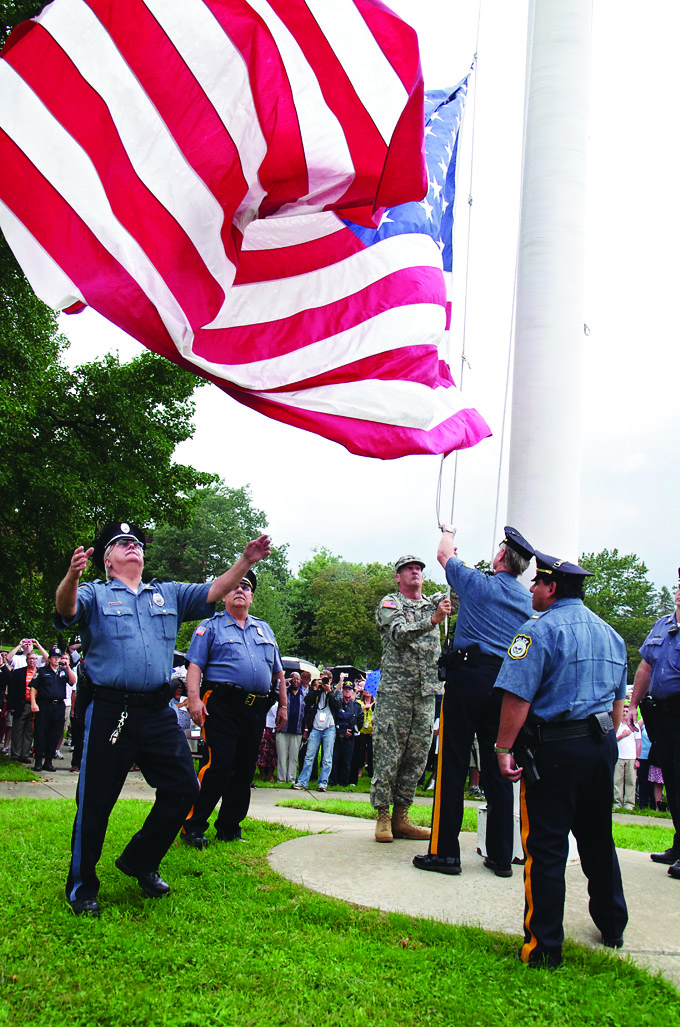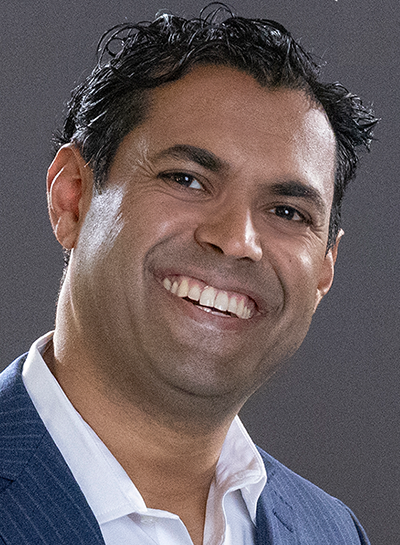
A President’s death recalled
September 22, 2011
With little fanfare, Fort Monmouth closes
September 22, 2011Reporter’s Notebook
By Neil Schulman
Elie Wiesel, Holocaust survivor, author of dozens of books including the acclaimed “Night,” and recipient of many awards, including the Nobel Peace Prize, still considers himself a student.
The soft-spoken man, who was appointed Chair of the President’s Committee of the Holocaust by Jimmy Carter, and has met with numerous Presidents and other world leaders, told the audience of about 800 at Congregation Torat El, Ocean Township, on Sunday that he had spent his life learning and experiencing new things. Even when he is a teacher, he always does different things, he said — he’s never taught the same course twice.
Wiesel attracted a large crowd; the reception hall he spoke in was filled. Additional crowds watched him speak through a telecast onto a screen set up in the synagogue’s main sanctuary.
Rabbi Aaron Schonbrun, when introducing Wiesel, said that this was the first time he had ever met the man, but he had always regarded him as a teacher, using his books and experiences as lessons for Hebrew School students and congregants.
Wiesel spoke on a variety of topics, from how he learned Hebrew as a child to the dangers posed by Iraqi president Mahmoud Ahmadinejad, the first major elected world leader who is a Holocaust denier.
His father wanted him to learn not just the Hebrew used in prayers, but modern conversational Hebrew, but Wiesel lived in a small village. So his father hired a tutor from another town, who came with a textbook and taught Wiesel and a friend.
Wiesel said that he learned Hebrew by memorizing the text, a technique he no longer recommends, since it doesn’t give insight. Still, he used the knowledge of the language when he became a journalist.
Studying and debate is important, Wiesel said, and it doesn’t have to be friendly. He brought up the story of the Hillel and Shammai, two rabbis who led major schools in ancient Roman times.
The schools quarreled bitterly, and disagreed over almost every religious interpretation, Wiesel said. Still, children of the schools married each other.
It is important to have a vigorous dialogue, but it must be a meaningful one, he said. Many of the debates today are about low level, pointless topics, not truly exploring the details that need to be explored.
One of the reasons Ahmadinejad is dangerous is that he has the ear of the world due to his position, Wiesel said. When he comes to speak at the U.N., journalists report his nonsense. And what Ahmadinejad wants is to destroy the Jewish people.
Since Wiesel is well known as a Holocaust survivor — he was sent to Auschwitz Concentration Camp as a teenager in World War II, and “Night” explored his experiences there — several people asked him about efforts to ensure the Holocaust is remembered.
The United States is on the forefront of that, he said. There is a national remembrance day, and every president since Carter has acknowledged the Holocaust.
One of his most memorable comments of the night was bittersweet. He told a parable of a sage who came to a very corrupt town.
The sage would go around the streets, yelling, “Repent! Change your ways.” At first, children gathered to hear him, but they faded away. And the adults never listened.
But the sage continued to yell for years while the town stayed corrupt. One day, a child asked him, “Why do you keep doing this? You know that you aren’t reaching anyone.”
The sage replied that at first he thought he would be able to reach, though he had long since given up on that. But still he continued to shout, because “I do not want them to change me.”




